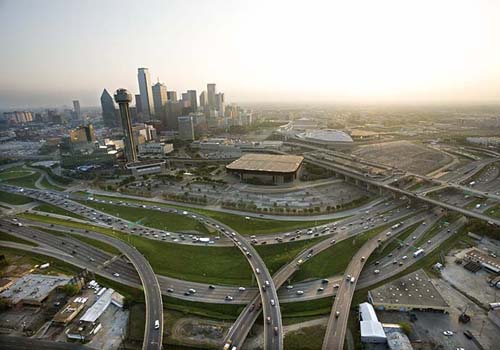Ann from Fort Worth has spoken. No way, José, can one do the 10-Day Local Food Challenge in east Texas. She challenged us to solve this problem.

I’ll first say that Ann is a lively writer. She starts…”Yes! to eating as local as possible. Yes! to supporting local farmers. Yes! to all those cute little jars filled with jewel-toned preserves. …I want to be like Barbara Kingsolver’s family! I am on board. However, (yep, the cursed howevers).…”
Here are her “howevers”, summarized:
1. Temperature. Triple digit in August. Farmers’ Markets shut down mid-July through mid-September cuz nothing grows. Greens wilted. Crucifers won’t sprout. “We are, shall we say, between seasons which is diplomatic speak for hotter than the hinges of Hades.”
2. Water. Not much in Texas. Forget water intensive veggies. Hydroponics? Possible but costly.
3. Restriction on “growing your own.” Yes to backyard chickens. Yes to a garden but what if your neighbor uses round-up? No to larger animals so you’d need acreage if you want red meat. And yes to eggs (she trades chicken sitting for her supply).
4. Restriction of neighbor to neighbor trade. The few legal raw milk dairies have waiting lists.
5. Distance. 100 miles might seem a small eating radius, but if you drive 200 miles for 2 quarts of milk, doesn’t that kill the intent?
6. Money. Ann asks, “[do i buy] that chunk of locally produced artisanal cheese at $13.99 per pound or the chunk of white cheddar (no rbst) on special for $3.99 per pound.”
These are real issues but not insoluble problems.
I asked one of the most knowledgeable permaculture teachers I know to respond to Ann’s (and many people’s dilemma), which will be the substance of the next post.
Here I’ll conclude with a further quote and a bit of a homily. On money, Ann asks, “Do I continue to support the rescued geriatric horses (slaughterhouse bound when I got them) and eat as healthily and cheaply as possible or do I send them on their less than merry way and pay the usually double prices for local food – when it is available?”
Comparing (local) apples with (industrial) oranges
When cost and inconvenience argue against local food and for our local big box grocer, I think we are stumbling into a pervasive fallacy that’s soaked so deep into the Western mind it’s hard to hold up to scrutiny: that cheap trumps all other values, and that our money behavior has nothing to do with the rest of our lives.
Balancing our accounts with values in mind
When we care deeply about something or someone, we invest our time, talent and treasure willingly. Ann says, “By the way, I’m hanging on to the horses, thanks.” In other words, rescuing horses is a value and no matter the cost, it’s worth it. But is it horses or local food? I’ll bet if we could spend some time together, Ann and I would discover expenses that bring no value but suck money out of our wallets. Almost everyone I’ve counseled wearing my money hat has a recurring automatic expense that they no longer need or use. The classic example is a woman whose car was declared total but was still running. She kept paying comp and collision… because she’s always done so. There’s an survey service I don’t use, that i could suspend (and will as soon as I finish this post). I’ll bet I could find enough holes in my financial bucket to invest 10% more in food that’s easily 20% more satisfying.
I’m not saying Ann is wrong. She’s really every-eater accustomed to the food prices and convenience of the local supermarket living in a part of the country where fruit isn’t falling off trees (like the Pacific Northwest right now).
Thinking about this email from Ann, the questions I have are these:
1. Is local really impossible in the Texases of the world? How many Texases are there? What has to change to have a balance between number of eaters and local capacity? (that, btw, is a very tough question)
2. What strategies would the Ann’s of this world need to use to adopt even a 10% or 20% local lifestyle? What might motivate them to do it?
3. If place matters – for practical, emotional or spiritual reasons – what can we do to change the place we are?

Texas? Are some places just too far gone for local?
Ann from Fort Worth has spoken. No way, José, can one do the 10-Day Local Food Challenge in east Texas. She challenged us to solve this problem.
Here are her “howevers”, summarized:
Comparing (local) apples with (industrial) oranges
Balancing our accounts with values in mind
Tags: